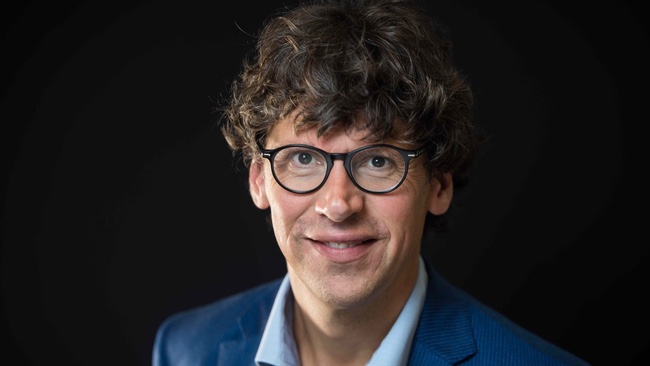Frits Verhoef
As a physicist, Frits believed for many years that technology could solve the climate crisis. With enough solar panels, heat pumps, and wind turbines, we could tackle the crisis and keep the temperature rise under control. But reality proved more complex.
After a career at companies like KPN and AEGON, Frits founded Energieker in 2007: one of the first initiatives in the Netherlands to sell solar panels online. Once the panels were installed on thousands of rooftops, he shifted his focus to the next big step in the energy transition: the shift from fossil fuels to sustainable heat.
In 2023, Frits stepped down from econic, the company he co-founded, which rapidly grew from three founders to 150 employees in Amsterdam and Aachen. Econic made thousands of homes more sustainable, transforming them into so-called e-homes, with smart heating and energy systems offered via a monthly subscription.
But technology and growth alone are not enough to solve the climate crisis.
Our underlying beliefs must also change.
Today, Frits advocates for cooperative ownership in the energy transition. His belief: the energy transition is local, and therefore the decision-making power should also be local – not in the hands of shareholders on the other side of the world.
Frits is the author of the book Lef en Moed (2018), about the climate issue, the energy transition, and his personal journey through ideals, fears, and obstacles. In 2025, his second book will be published: *Stories Beyond the Future*.
In addition, Frits is an ambassador and co-initiator of Follow This (the shareholder movement urging Shell to become more sustainable), a member of the Investment Committee of the Amsterdam Climate and Energy Fund (AKEF), a board member of a social enterprise, and a guest lecturer at secondary schools.
In his talks, Frits shares his knowledge, experience, and vision in an energetic and personal way. He connects the energy transition to broader societal transitions, shows why system change is inevitable – and how it can only succeed if we dare to change the underlying stories and beliefs as well.


